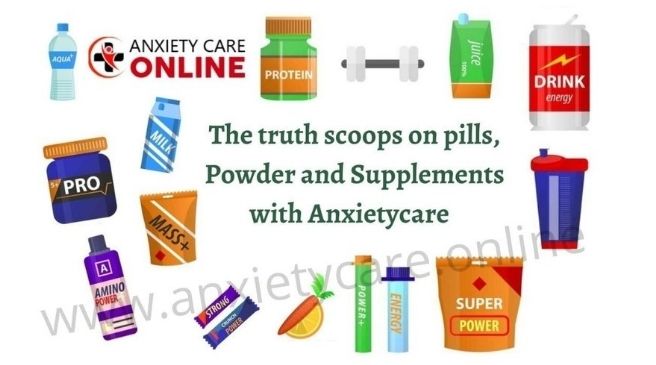Five things you should know about Supplements
Saturday January 1, 2022 |
The truth about Supplements: Five things you should know
Vitamins and supplement are more popular and widely used substances today than they have ever been. You buy these supplements intending to improve your health, but are you fully aware of what to look for and what is inside the bottle.
Just because a supplement bottle is labeled, “natural” does not mean it is effective and safe to use. The effect of supplements varies from person to person depending upon several factors such as age, weight, medical requirements, and others. This blog will help you know five essential things about supplement and how they relate to your diet and fitness concerning basic overview, how to use, dosage, myths, and how to buy good-quality dietary supplement.
What is a Supplement?
Firstly, you should know the basics of supplements that include vitamins, minerals, herbs, enzymes, amino acids, botanicals, or other dietary ingredients. You can take these products orally as they are available in pill, tablet, capsule, or liquid form to supplement your diet.
Supplements are available for sale in various forms at a local pharmacy or online without a prescription. You should always consult your medical healthcare provider before taking any supplement. Some of these beneficial products can cause side effects or interact with other elements such as over-the-counter (OTC) medicines, prescribed drugs, or other supplements you are already taking.
It is essential to check with your health expert while taking supplements if you are pregnant or breastfeeding, about to have surgery, or have any medical health condition such as heart disease, high blood pressure, or diabetes.
How to Take Supplements?
Here are some tips on the way you can take supplements. These simple methods can help you avoid the risks and stay on track:
- Follow precisely the directions on the prescription label and the instructions of your medical healthcare provider.
- Please make a list of all the supplement and medications you are using and share it with your doctor.
- Write the amount of each product you are taking and at what time of the day. You might forget about doses and take the supplement excessively, resulting in dangerous effects.
- Also, mention how the supplement affects you and whether you experience any side effects. Share your progress with the medical healthcare provider on every visit.
Are all the Supplements tested before supply?
It is not compulsory for supplement manufacturers to test their products for safety and effectiveness. Some ingredients of the supplements have been tested in animals or humans. For example, folic acid has reduced congenital disability risks in pregnant women. However, other elements have not been studied well or at all.
The Food and Drug Administration (FDA) does not regulate dietary supplements as they treat them more like a diet item rather than medicines. Unlike drug manufacturing agencies, the makers of supplement are not bound to show that their products are safe or effective before supplying them in the market.
How to buy Good-quality Supplements?
Manufacturing agencies need to follow “good manufacturing practices” (GMP), which indicates that their supplements meet specific quality standards. However, it has been seen that some products may have more or less amount of ingredients than is mentioned on the label. Or sometimes, it may even contain ingredients not listed on the label, including prescription drugs.
To ensure you are getting a good-quality product, look at the seal and check if it has approval from a trusted organization that tests supplement. Some known organizations include Consumer Lab or NSF International, the U.S. Pharmacopeia. Products that carry seals from these institutes are meant to be manufactured correctly, not have any harmful contaminants, and contain the ingredients mentioned on the label.
You can also contact or get in touch with the product’s manufacturer and find out about the research they have done to check the benefits of the supplement, safety standards, and what side effects have been reported. You can also check some ingredient details on the FDA’s website.
Medical myths concerning Supplements and their use
It is clearly understood that people take supplements to live a healthy and disease-free life. If popping a pill every day adds up to the chances of having a healthy, healthy life, no doubt that supplements are popular. According to a survey between 2011 & 2012, 52% of adults in the U.S. reported taking some supplements, among which almost 31% (1 in 3 people) took multivitamins.
The supplement industry includes high stocks with an estimate of about $ 220 billion. When you couple the need to live well with a marketing campaign depleting toned bodies and perfect smiles, supplements have been sold out rapidly and used without giving much thought about the ingredients.
It is essential to know that some supplement are necessary for specific groups. For instance, the CDC advises females of the child-bearing age group to consume folic acid supplements. Similarly, vitamin D is an essential component, primarily during the darker months for individuals who live in colder locations.
Although, in general, for adults without concerning medical conditions who eat a healthy and balanced diet, the vast majority of dietary supplement are not required. As these supplements come at the intersection of science and marketing, it is no surprise that there are misconceptions linked to their benefits.

